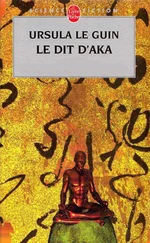But now those pale eyes were rilled with tears, and the soft, weathered face of the Duchess worked with the effort to control her feelings.
“Your ladyship,” I said, hoping that the translatomat would provide the proper appellation for a duchess in case I had it wrong, “forgive me, I am from another country, whose funeral is this?”
She looked at me unseeing, dimly surprised but too absorbed in sorrow to wonder at my ignorance or my effrontery. “Sissie’s,” she said, and speaking the name made her break into open sobs for a moment. She turned away, hiding her face in her large lace handkerchief, and I dared ask no more.
The crowd was growing rapidly, constantly. By the time the coffin was borne forth from the church, there must have been over a thousand people, most of the population of Legners, all of them members of the Royal Family, crowded into the square. The King and his two sons and his brother followed the coffin at a respectful distance.
The coffin was carried and closely surrounded by people I had never seen before, a very odd lot—pale, fat men in cheap suits, pimply boys, middle-aged women with brassy hair and stiletto heels, and a highly visible young woman with thick thighs. She wore a miniskirt, a halter top, and a black cotton lace mantilla. She staggered along after the coffin, weeping aloud, half hysterical, supported on one side by a scared-looking man with a pencil mustache and two-tone shoes, on the other by a small, dry, tired, dogged woman in her seventies dressed entirely in rusty black.
At the far edge of the crowd I saw a native guide with whom I had struck up a lightweight friendship, a young viscount, son of the Duke of 1st, and I worked my way towards him. It took quite a while, as everyone was streaming along with the slow procession of the coffin bearers and their entourage towards the King’s limousines and horse-drawn coaches that waited near the palace gates. When I finally got to the guide, I said, “Who is it? Who are they?”
“Sissie,” he said almost in a wail, caught up in the general grief—”Sissie died last night!” Then, coming back to his duties as guide and interpreter and trying to regain his pleasant aristocratic manner, he looked at me, blinked back his tears, and said, “They’re our commoners.”
“And Sissie-?”
“She’s, she was, their daughter. The only daughter.” Do what he could, the tears would well into his eyes. “She was such a dear girl. Such a help to her mother, always. Such a sweet smile. And there’s nobody like her, nobody. She was the only one. Oh, she was so full of love. Our poor litde Sissie!” And he broke right down and cried aloud.
At this moment the King and his sons and brother passed quite close to us. I saw that both the boys were weeping, and that the King’s stony face betrayed a superhuman effort to maintain calm. His slighdy retarded brother appeared to be in a daze, holding tight to the King’s arm and walking beside him like an automaton.
The crowd poured after the funeral procession. People pushed in closer, trying to touch the fringes of die white silk pall over the coffin. “Sissie! Sissie!” voices cried. “Oh, Modier, we loved her too!” they cried. “Dad, Dad, what are we going to do without her? She’s with the angels,” the voices cried. “Don’t cry, Mother, we love you! We’ll always love you! Oh Sissie! Sissie! Our own sweet girl!”
Slowly, hampered, almost prevented by the passionate protestations of die immense royal family gathered about it, the coffin and its attendants reached the coaches and cars. When die coffin was slid into the back of die long white hearse, a quavering, inhuman moan went up from every diroat. Noblewomen screamed in thin, high voices and noblemen fainted away. The girl in the miniskirt fell into what looked like an epileptic fit, foaming at the mouth, but she recovered quite quickly, and one of the fat, pale men shoved her into a limousine.
The engines of the cars purred, the coachmen stirred up their handsome white horses, and the cortege set off, slowly still, at a foot pace. The crowd poured after it.
I went back to the hotel. I learned that evening that most of the population of die city of Legners Royal had followed the cortege all die way, six miles, to die graveyard, and stood dirough the burial service and the inhumation. All through the evening, late at night, people were still straggling back towards the palace and the royal apartments, weary, footsore, tear-stained.
During the next few days I talked with the young viscount, who was able to explain to me the phenomenon I had witnessed. I had understood that all the people in the Kingdom of Hemgogn were of royal blood, direcdy related to its (and other) kings; what I had not known was that there was one family who were not royal. They were common. Their name was Gat.
That surname, and Mrs. Gat’s maiden name, Tugg, went entirely unmentioned in the Book of the Blood. No Gat or Tugg had ever married anybody royal or even noble. There was no family legend about a handsome young prince who seduced the fair daughter of the bootmaker. There were no family legends. There was no family history. The Gats didn’t know where they came from or how long they had lived in the kingdom. They were bootmakers by trade. Few people in sunny Hegn ever wear boots. As his father had done, and as his son was learning to do, Mr. Gat made dressy leather boots for the Princes of the Watch, and ugly felt boots for the Queen Mother, who liked to walk in the smallmeat meadows in winter with her gorkis. Uncle Agby knew how to tan leather. Aunt Irs knew how to felt wool. Great-Aunt Yoly raised sheep. Cousin Fafvig ate far too many grapes and was drunk most of the time. The eldest daughter, Chickie, was a bit wild, though good at heart. And Sissie, sweet Sissie, the younger daughter, had been the kingdom’s darling, the Wild Flower of Hemgogn, the Little Common Girl.
She had always been delicate. The story was that she had fallen in love with young Prince Frodig, though he of course could never have married her. It was said they had been seen talking, once, more than once, near the Palace Bridge at twilight. My viscount clearly wanted to believe this but found it difficult, since Prince Frodig had been out of the country, at school in Halfvig, for three years. At any rate, Sissie had a weak chest. “The commoners often do,” the viscount said, “it’s hereditary. Runs in the female line.” She had gone into a decline, grown wan and pale, never complaining, always smiling but so thin and quiet, just faded away, from day to day, until she lay, in the cold cold clay, Sweet Sissie, the Wild Flower of Hemgogn.
And the whole kingdom mourned her. They mourned her wildly, extravagantly, unconsolably, royally. The King had wept at her open grave. Just before they began to shovel in the earth, the Queen had laid on Sissie’s coffin the diamond brooch that had come down to her, mother to daughter, for seventeen generations from Erbinrasa of the North, a jewel that no hand had ever touched that was not of the blood of the Erbinnas. Now it lay in the grave of the Little Common Girl. “It was not as bright as her eyes,” the Queen said.
I had to leave Hegn not long after this funeral. Other travels absorbed me for three or four years, and when I went back to the Kingdom of Hemgogn, the orgy of grief was long over. I looked up my viscount. He had given up playing at being a guide upon coming into his inheritance: the tide of Duke of 1st and an apartment in the New Wing of the Royal Palace, with usufruct of one of the Royal Vineyards, which furnished grapes for his parties.
He was a nice young man, with a faint strain of originality in him that had led him to his avocation as a guide; he was actually well disposed towards foreigners. He also had a kind of helpless politeness, which I took advantage of. He was quite incapable of refusing a direct request, and so, because I asked him to, he invited me to several parties during the month I stayed in Hemgogn.
Читать дальше









